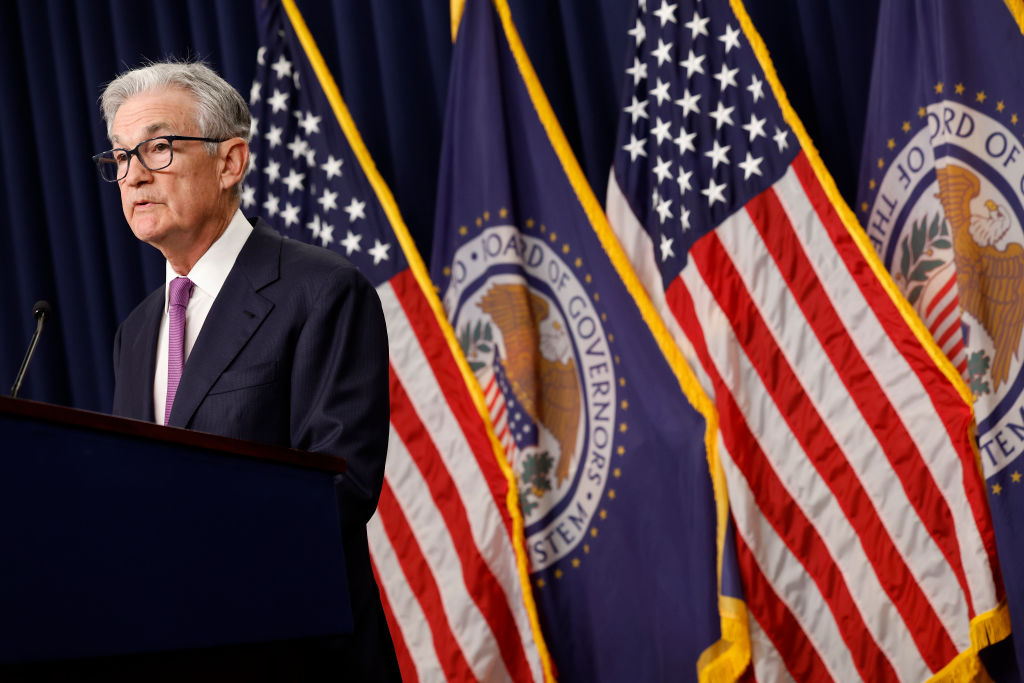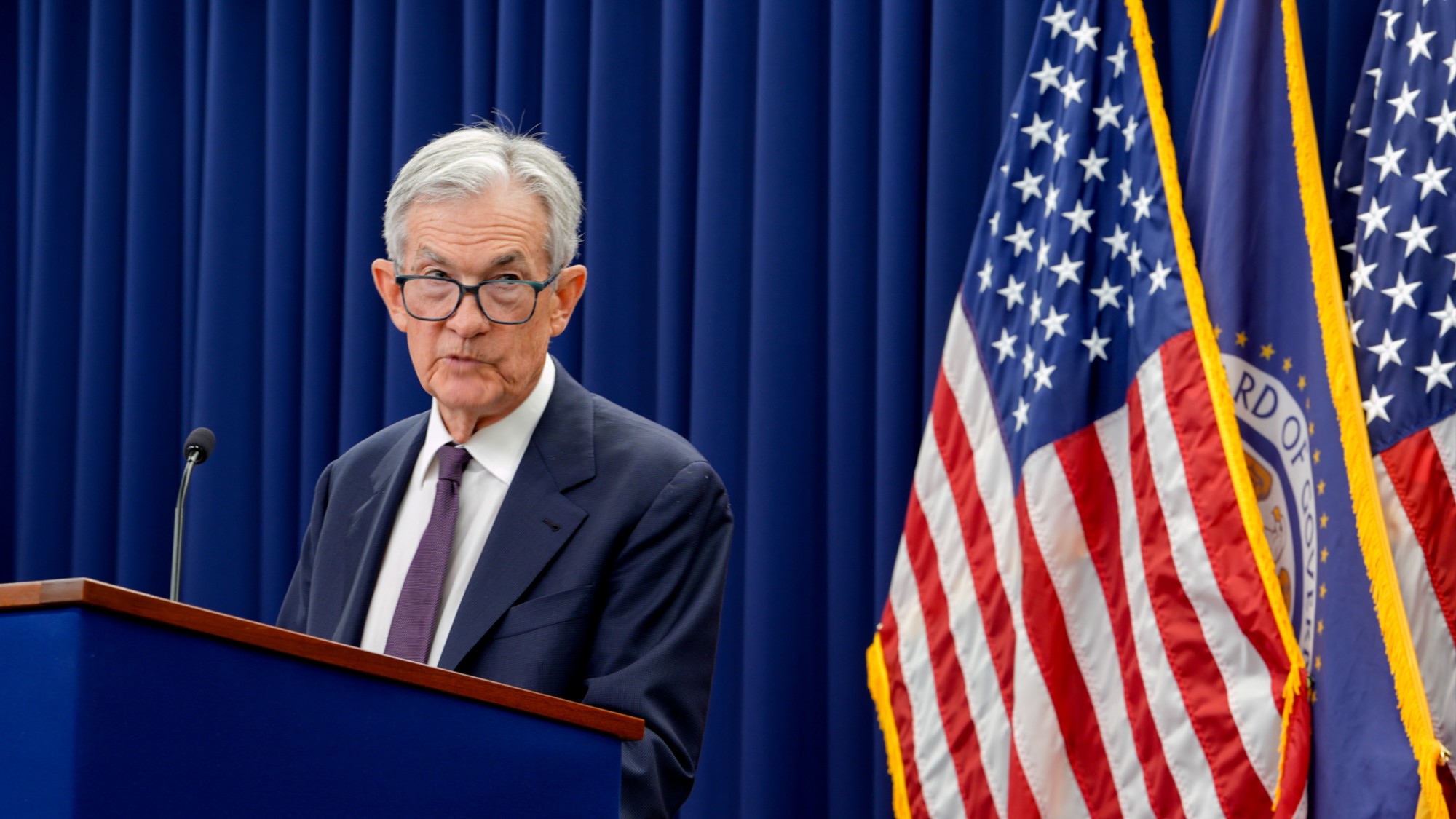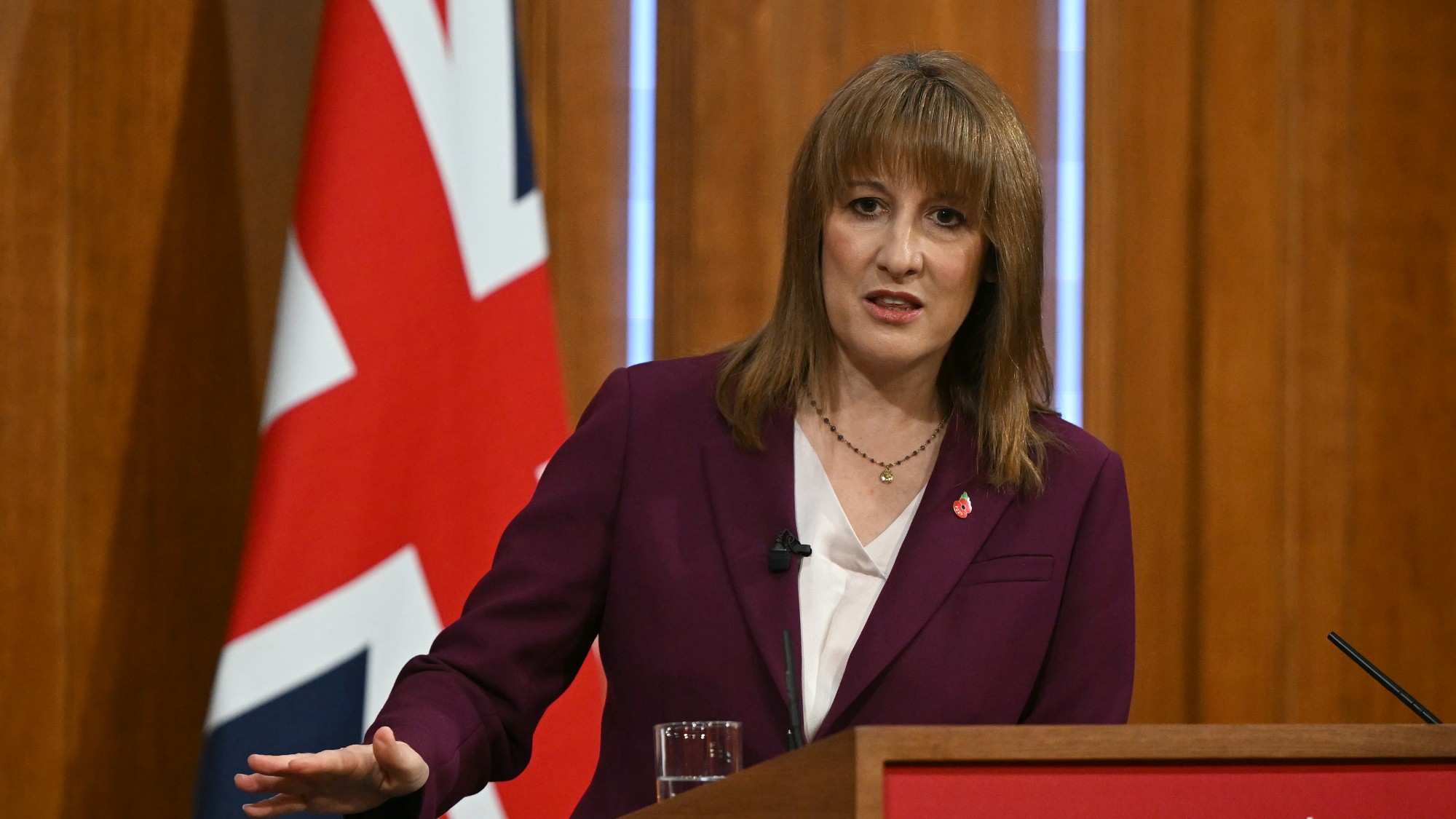High interest rates are changing everything you know about the economy and governing
In Washington, deficits suddenly matter again


A free daily email with the biggest news stories of the day – and the best features from TheWeek.com
You are now subscribed
Your newsletter sign-up was successful
High interest rates may soon get higher. CNN reported that JPMorgan Chase CEO Jamie Dimon sent a “stark warning” to Wall Street on Monday that it is possible the Federal Reserve will raise the benchmark rate all the way to 7% — even though most analysts think it will top out under 6%. If his “contrarian” prediction is correct, “you’re going to see a lot of people struggling," Dimon said.
But the new era of high interest rates is already rippling through the economy and government.
The effects are being felt in the housing market: CNBC reported that mortgage demand fell 6% during the last week of September because “mortgage rates just continue to climb higher.” Rate hikes are affecting car buyers: The average monthly payment on a new car is $736 — up $33 from a year ago, per Axios. And they’re being felt in Hollywood: Financial Times noted that entertainment companies are putting an end to the “golden era of cheap streaming” because rates are making TV and movie production more expensive. Expect fewer new shows and higher streaming subscription costs.
The Week
Escape your echo chamber. Get the facts behind the news, plus analysis from multiple perspectives.

Sign up for The Week's Free Newsletters
From our morning news briefing to a weekly Good News Newsletter, get the best of The Week delivered directly to your inbox.
From our morning news briefing to a weekly Good News Newsletter, get the best of The Week delivered directly to your inbox.
Washington isn't immune to the effects, either. The federal government was able to swallow rising deficits over the last 15 years, Eric Levitz argued in Intelligencer, because it could borrow money cheaply. Now the yield on a 10-year bond is at 4.8%, “its highest level since 2007.” If the rate stays that high, “the implications for the nation’s finances will be profound.” If federal borrowing continues and rates don’t come down, “interest payment will come to consume more than half of federal tax revenue by 2050.”
‘Higher for longer’
“Forget the shutdown,” The Economist editorialized. America’s “real fiscal worry” is rising bond costs linked to the Federal Reserve’s decision to keep interest rates “higher for longer” as it tries to rein in inflation. Right now, the Feds spend 2.5% of the country’s gross domestic product servicing the national debt. By 2030, that number will be 3.2%, “equaling an all-time high and more than the cost of defense.” And that might even be a low estimate. It’s clear that American politicians cannot “continue to act as if deficits do not matter.”
“Rising interest rates mean deficits finally matter,” Greg Ip added at The Wall Street Journal. The now-dead era of ultra-low interest rates meant that “we had a blissful 25 years of not having to worry about this problem,” one analyst said. But it’s tough to see who might solve that problem: Former President Donald Trump and President Biden “have signed deficit-busting legislation” and nobody seems interested in either tax hikes or cutting Medicare and Social Security.
Don’t panic, Louise Sheiner wrote for The Brookings Institution. Yes, interest rates are high now — a big reason the deficit has increased — but “it is too soon to know whether the recent increases will persist, and if so, why.” If rates do come back down, or if the GDP gets an unexpected boost, the crisis will be averted. For now “it is much too soon to tell.”
A free daily email with the biggest news stories of the day – and the best features from TheWeek.com
‘The Romans had it worse’
Bank of America is taking the really long view on interest rates, Insider reported. The bank charted interest rates over 5,000 years of human civilization and found that while interest rates are relatively high now — compared to recent history — “the Romans had it worse.” The analysis was a bit tongue-in-cheek, however. “Investors can probably take the chart with a grain of salt.”
“So is the low-interest era really over?” asked The New York Times’ Paul Krugman. He doesn’t think so — and points to Japan as the model. That country has had both low population growth and low interest rates for a long time, and America is entering its own low-population growth phase. “Why shouldn’t we expect interest rates to go back to prepandemic levels once the Fed is done fighting inflation?”
Maybe there’s no reason for the Fed to raise rates further. The data suggests “inflation is falling,” Texas Tech University economist Alexander William Salter argued at The Hill, concluding that “fighting inflation is good, but causing needless economic pain isn’t.”
Joel Mathis is a writer with 30 years of newspaper and online journalism experience. His work also regularly appears in National Geographic and The Kansas City Star. His awards include best online commentary at the Online News Association and (twice) at the City and Regional Magazine Association.
-
 The ‘ravenous’ demand for Cornish minerals
The ‘ravenous’ demand for Cornish mineralsUnder the Radar Growing need for critical minerals to power tech has intensified ‘appetite’ for lithium, which could be a ‘huge boon’ for local economy
-
 Why are election experts taking Trump’s midterm threats seriously?
Why are election experts taking Trump’s midterm threats seriously?IN THE SPOTLIGHT As the president muses about polling place deployments and a centralized electoral system aimed at one-party control, lawmakers are taking this administration at its word
-
 ‘Restaurateurs have become millionaires’
‘Restaurateurs have become millionaires’Instant Opinion Opinion, comment and editorials of the day
-
 ‘Implementing strengthened provisions help advance aviation safety’
‘Implementing strengthened provisions help advance aviation safety’Instant Opinion Opinion, comment and editorials of the day
-
 Fed holds rates steady, bucking Trump pressure
Fed holds rates steady, bucking Trump pressureSpeed Read The Federal Reserve voted to keep its benchmark interest rate unchanged
-
 ‘The surest way to shorten our lives even more is to scare us about sleep’
‘The surest way to shorten our lives even more is to scare us about sleep’Instant Opinion Opinion, comment and editorials of the day
-
 Trump DOJ targets Fed’s Powell, drawing pushback
Trump DOJ targets Fed’s Powell, drawing pushbackSpeed Read Powell called the investigation ‘unprecedented’
-
 Unrest in Iran: how the latest protests spread like wildfire
Unrest in Iran: how the latest protests spread like wildfireIn the Spotlight Deep-rooted discontent at the country’s ‘entire regime’ and economic concerns have sparked widespread protest far beyond Tehran
-
 ‘They’re nervous about playing the game’
‘They’re nervous about playing the game’Instant Opinion Opinion, comment and editorials of the day
-
 ‘Officials say exporters pay the tariffs, but consumers see the opposite’
‘Officials say exporters pay the tariffs, but consumers see the opposite’Instant Opinion Opinion, comment and editorials of the day
-
 Will Rachel Reeves’ tax U-turn be disastrous?
Will Rachel Reeves’ tax U-turn be disastrous?Today’s Big Question The chancellor scraps income tax rises for a ‘smorgasbord’ of smaller revenue-raising options
